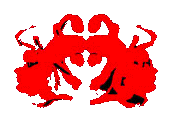|
Ψ Overlapping terms: Prejudice, Stereotyping, Discrimination, Racism, & Sexism
• Prejudice: the
essence of prejudice is the negative evaluation of some group.
• Stereotyping: Stereotype: A fixed, commonly held notion or image of a person or group, based on an oversimplification of some observed or imagined trait of behavior or appearance. Stereotypes can be either positive or negative, when used with prejudice they are negative. Stereotypes arise from a need to conceptually organize the world around us, but they may also result in oversimplified beliefs, attitudes or uncritical judgments.
• Discrimination: prejudice in action. Prejudice is a negative attitude, discrimination is a negative behavior.
• Racism refers to the assumption of superiority of one group, whether conscious or unconscious, & its exertion of power to enforce this to the detriment of other racial groups.
• Both racism & sexism are institutional practices that discriminate even when there is no prejudicial intend.
• Sexism: discrimination and/or hatred against people based on their sex rather than their individual merits.
• Norms are prescriptive, stereotypes are descriptive!
Ψ How pervasive is prejudice?
• The most heavily studied examples of prejudice are racial & gender.
• Gender stereotypes are much stronger than racial stereotypes.
• Overt prejudice is far less common today than it was 40 years ago.
• Subtle prejudice is widespread. Much prejudice remains hidden, until evoked by circumstance. As blatant prejudice subsides, automatic emotional reactions linger. Our dual attitude system, can have differing explicit (conscious) & implicit (automatic) attitudes
towards the same target.
|

|
• Gender prejudice has just about disappeared in western cultures, unfortunately this is not true world wide.
• Bogus pipeline: A procedure that fools people into disclosing their attitudes (or their prejudices). Participants are first convinced that a machine can use their psychological responses to measure their private attitudes, then they are asked to predict the machine's reading, thus revealing their attitudes. It refers also to a phony lie-detector device that is sometimes used to get respondents to give truthful answers to sensitive questions.
Social Psychology
Robert C. Gates
|

|
|









